Designing Retrofits for Energy-Efficient Apartments Link
Warm thanks to our 2024-25 Syracuse University student residents, who are already participating in this U.S. Department of Energy research project designed to improve energy resilience and comfort in existing buildings!
We look forward to welcoming the cohort of 2025-26 students who will be residing in the newly retrofitted buildings and helping to assess the retrofit effectiveness.
Syracuse faculty in the School of Architecture and the College of Engineering & Computer Science are leading a multidisciplinary team to design a building retrofit approach that would help combat climate change. Our team was awarded a grant from the U.S. Department of Energy to retrofit two apartment buildings on Syracuse University’s South Campus. The retrofit of the two apartment buildings was completed in summer 2024. The research team will continue monitoring the buildings for improved energy efficiency, air quality, and comfort through the spring of 2026.
About the Project Link
The goal of this project is to test a building retrofit design that will reduce energy use, provide healthy indoor air and comfort, and improve the building’s appearance. The retrofit design includes a prefabricated exterior wall system for improving air-sealing and insulation, and a high-efficiency mechanical system for heating, cooling, ventilation, and hot water heating.
For society in general, this research is testing Advanced Building Construction (ABC) retrofit technologies for existing buildings. These are designed to drastically reduce energy use in existing buildings. Real-world tests of these technologies are an important step in bringing them to market.
With the retrofit of the two apartments buildings completed in summer 2024, incoming student residents will be invited to weigh in on noticeable improvements in indoor air quality, thermal comfort (including newly installed cooling!), building aesthetics, and more.
This DOE research study will measure how the apartment buildings’ energy use, indoor air quality, and comfort conditions differ before and after they are retrofitted. Environmental data has and will continue to be collected using sensors on the interior and exterior of the buildings over the course of the year to measure things like temperature, humidity, air quality, and insulation. No individual-specific information will be collected, and no data will be shared with any representatives of Syracuse University who are not members of the research team. In the rare case when sensors require repair or replacement, Syracuse University Housing or Facilities staff will coordinate with residents to access sensing equipment.
Participating students have direct experience on a multimillion-dollar study funded by the U.S. Department of Energy, with unique opportunities to contribute to research findings that inform the way we design, construct, and operate our future buildings and cities.
2. Sign the Consent Form, which requires your signature to participate. You can email a signed copy of the form to Professor Bess Krietemeyer (eakriete@syr.edu)
Download a Project Consent Form with all the information.
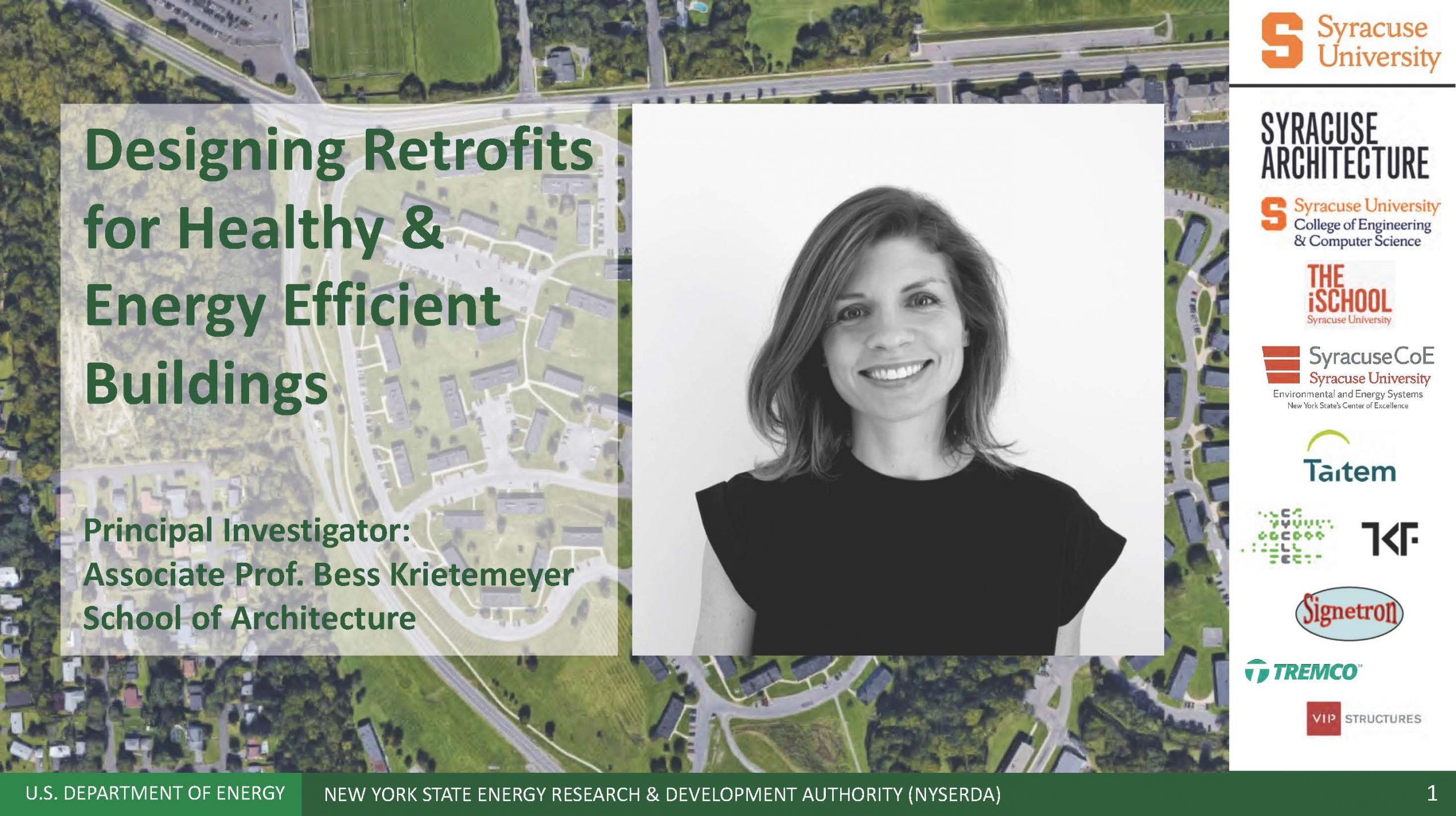
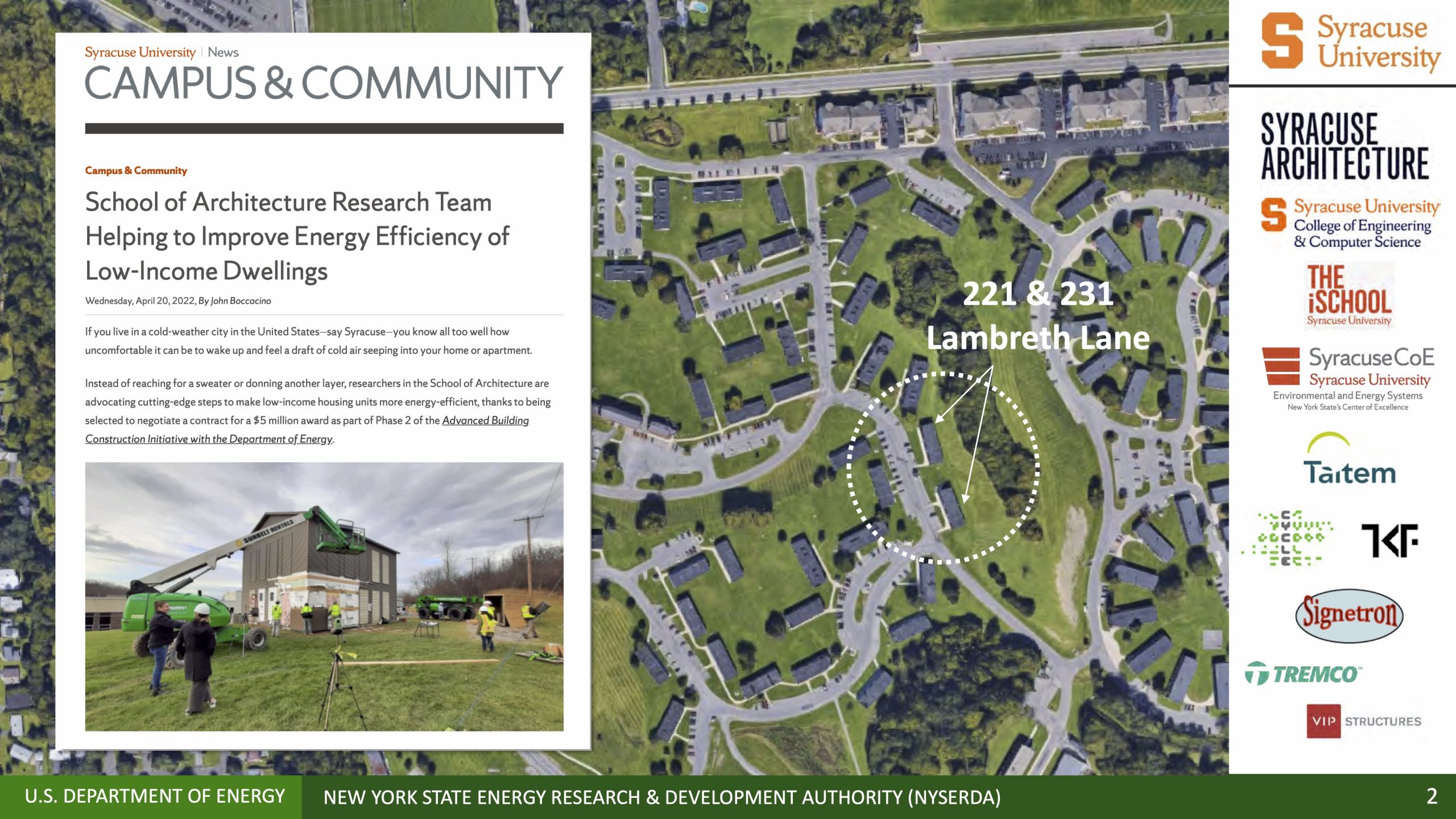
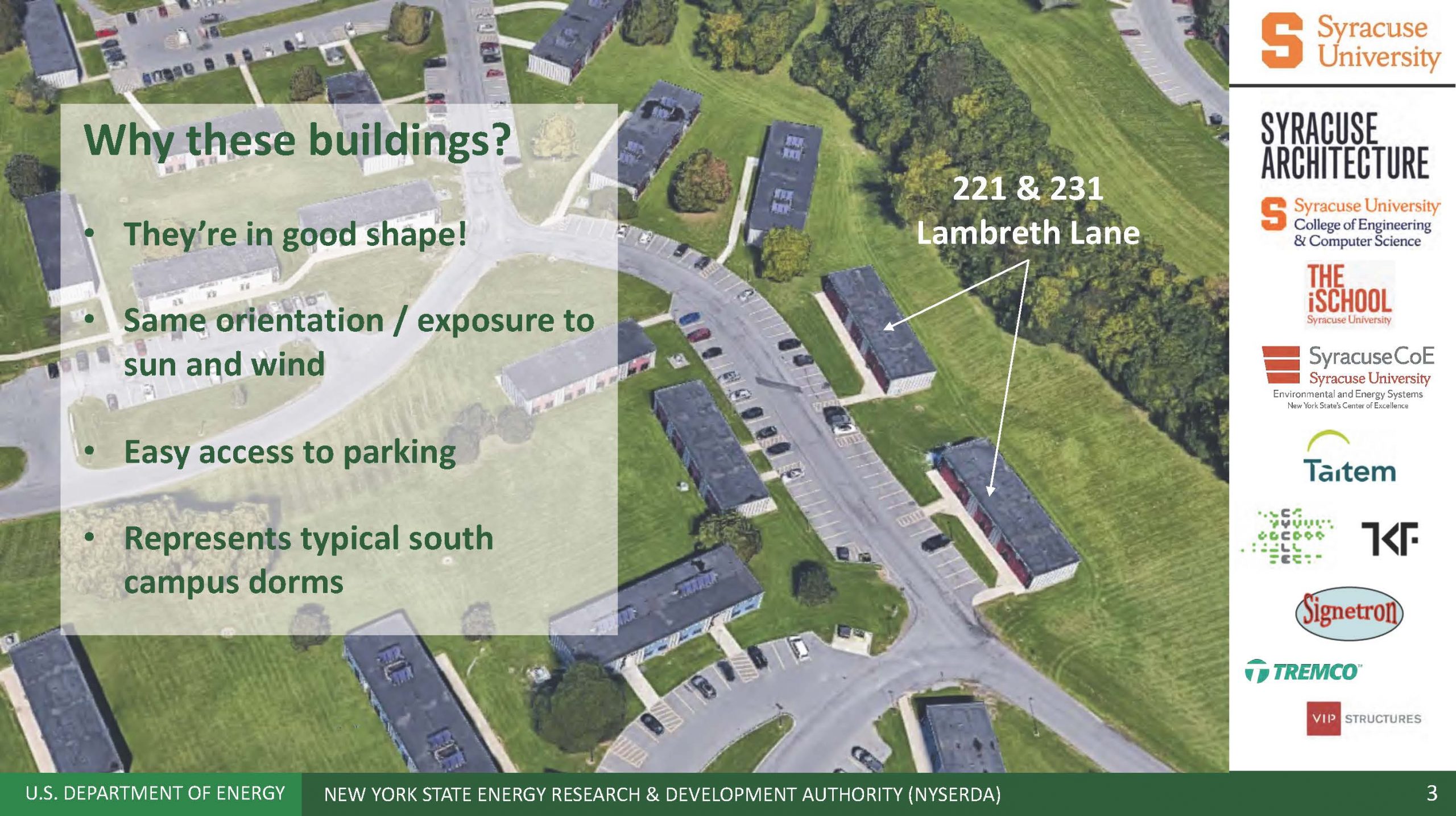
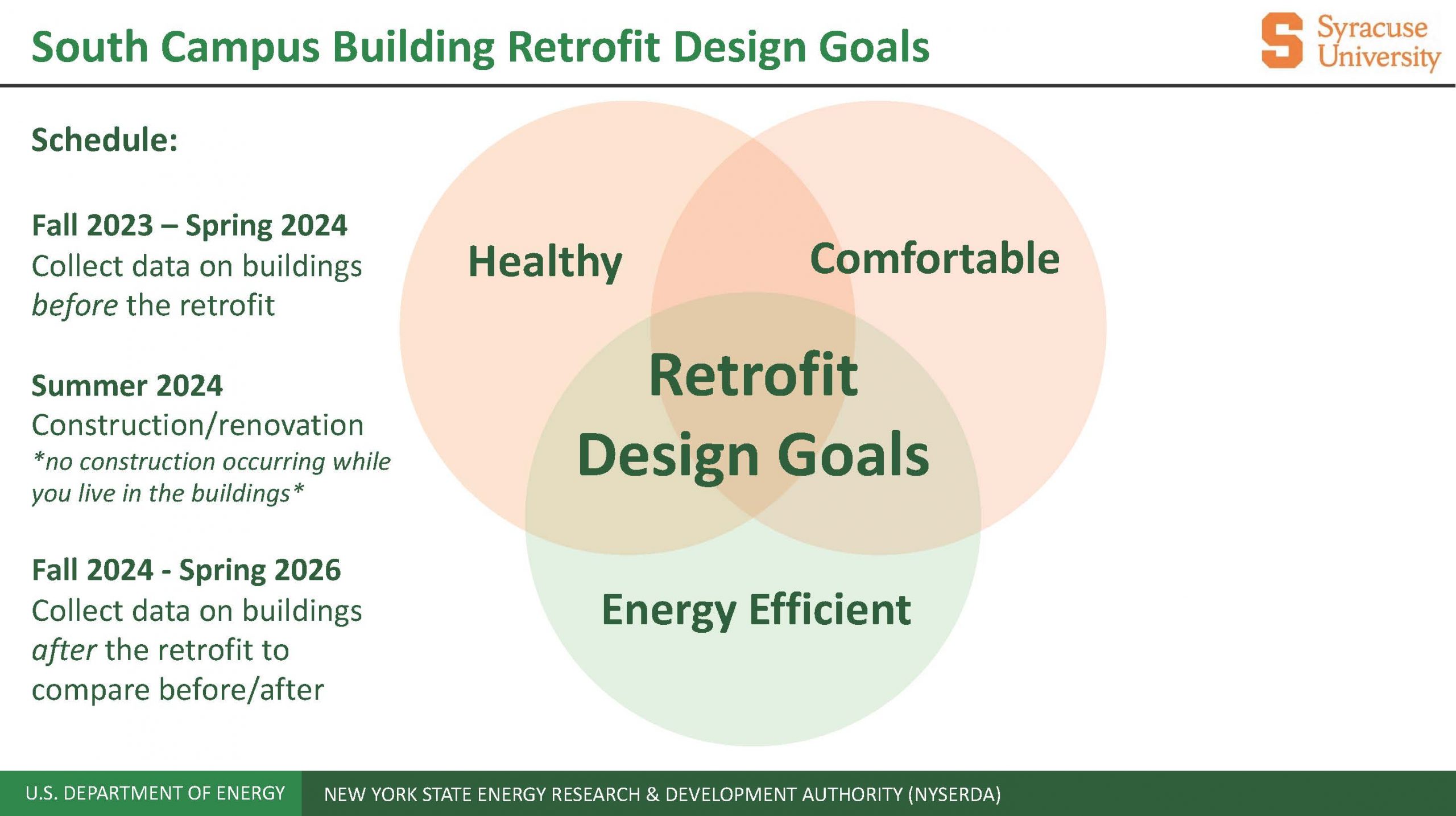
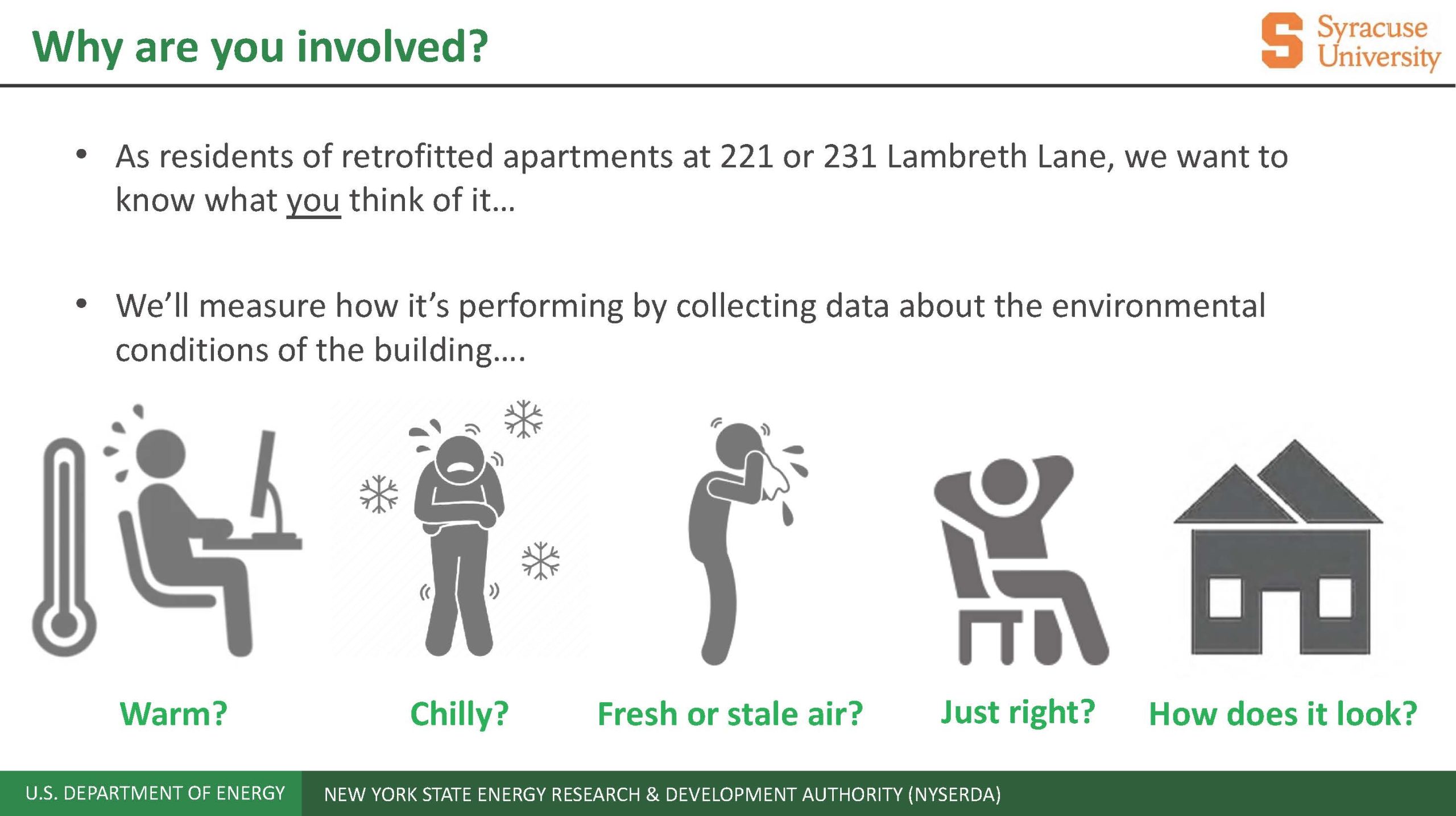
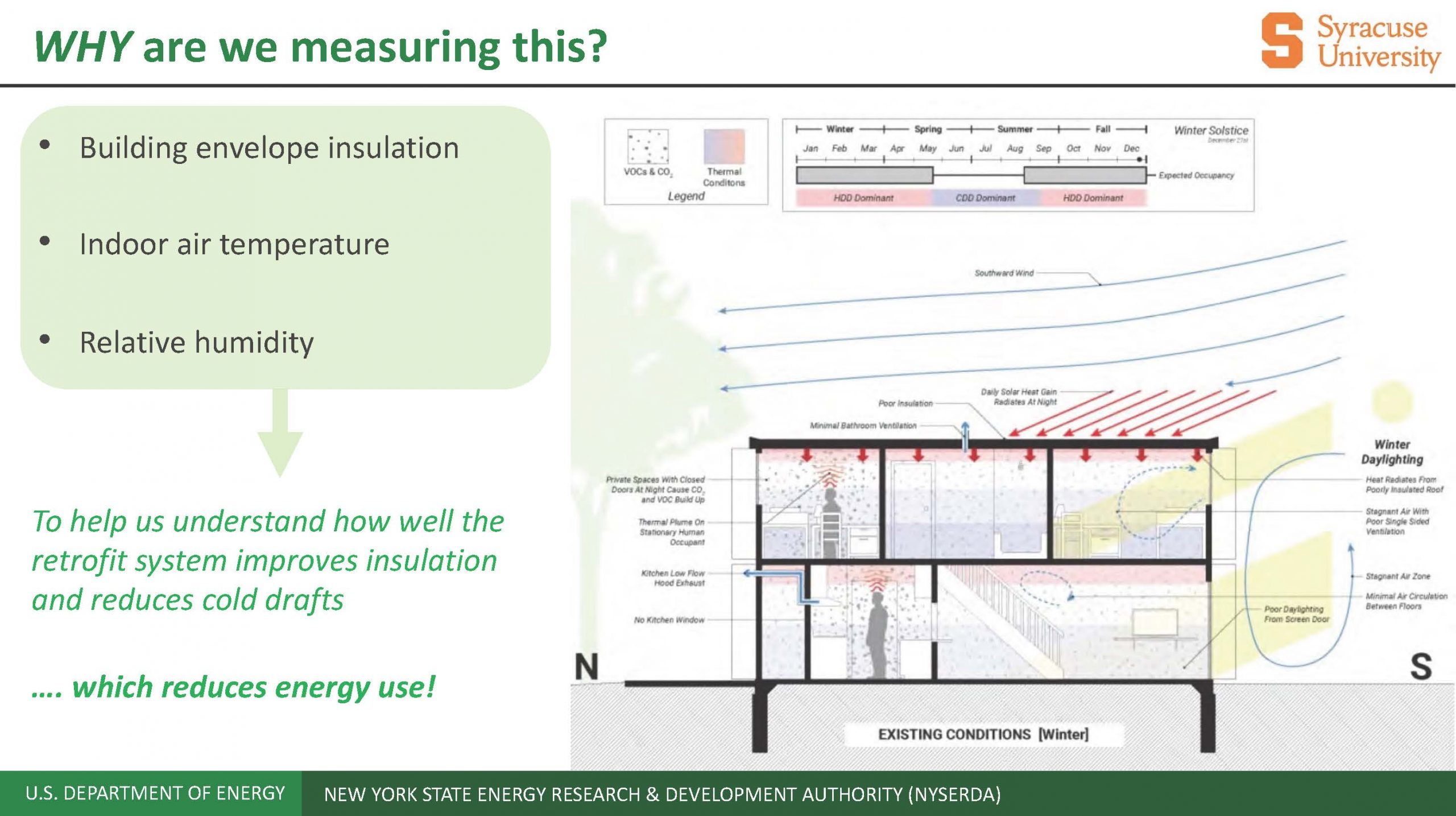
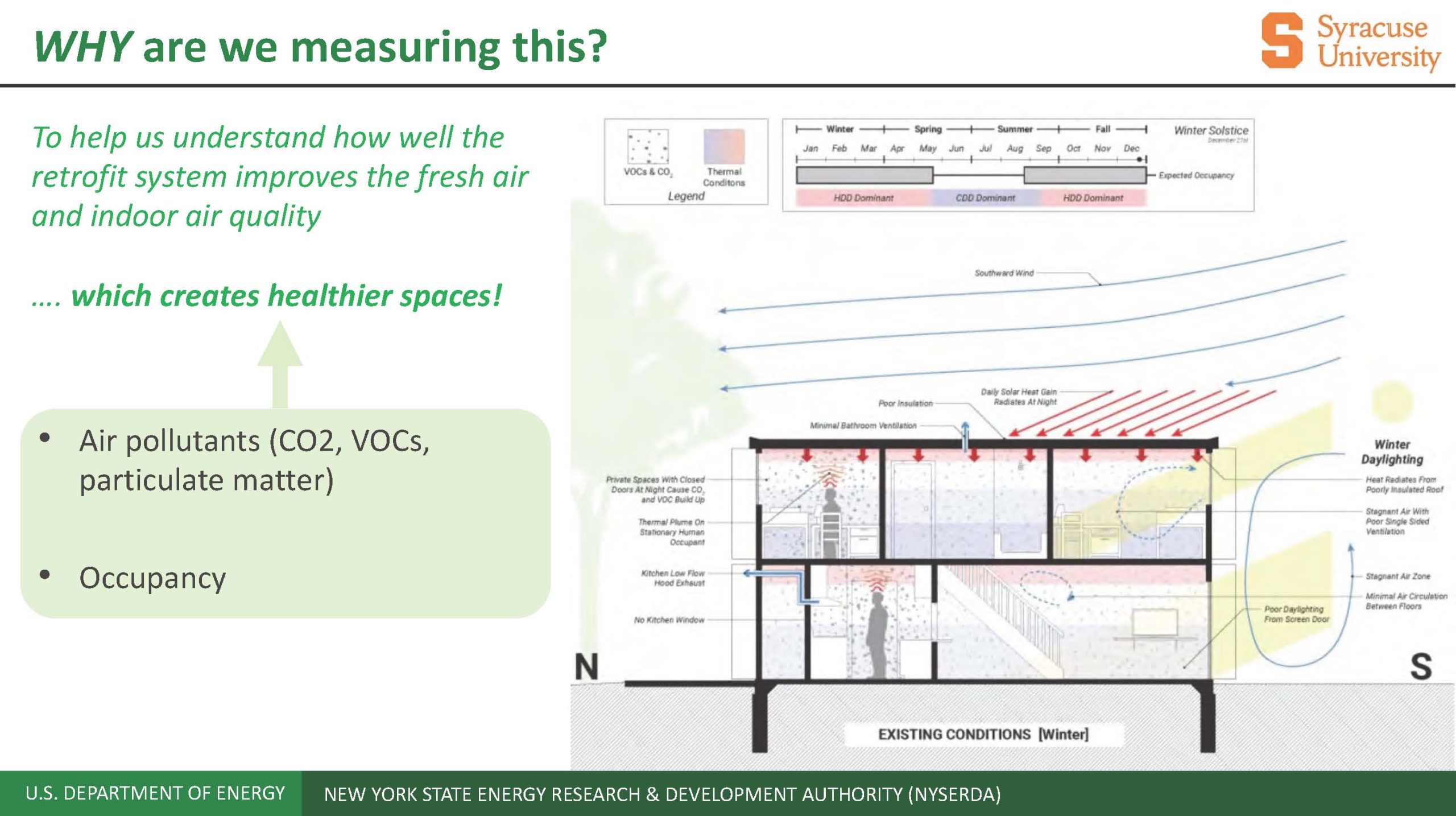
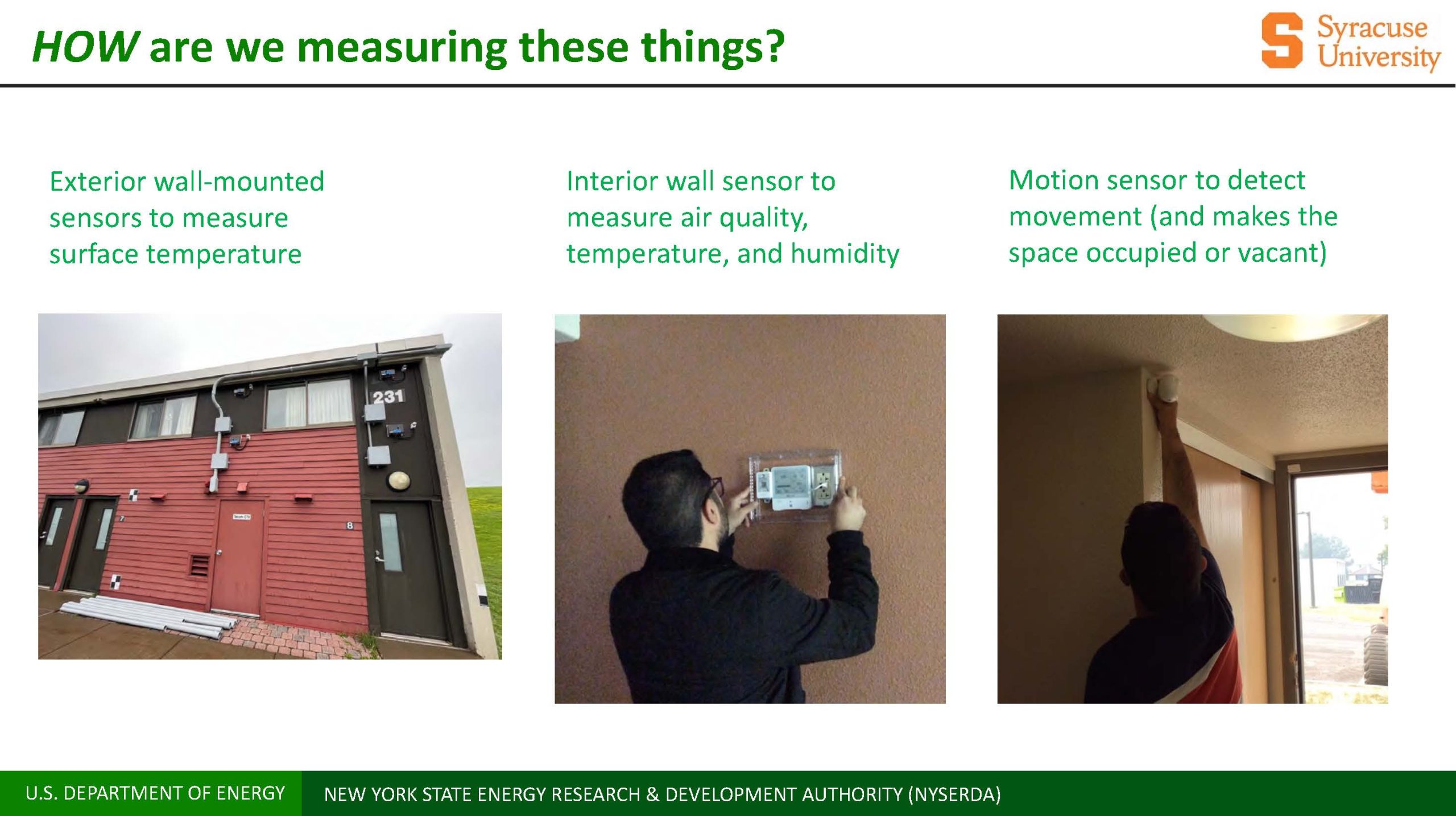
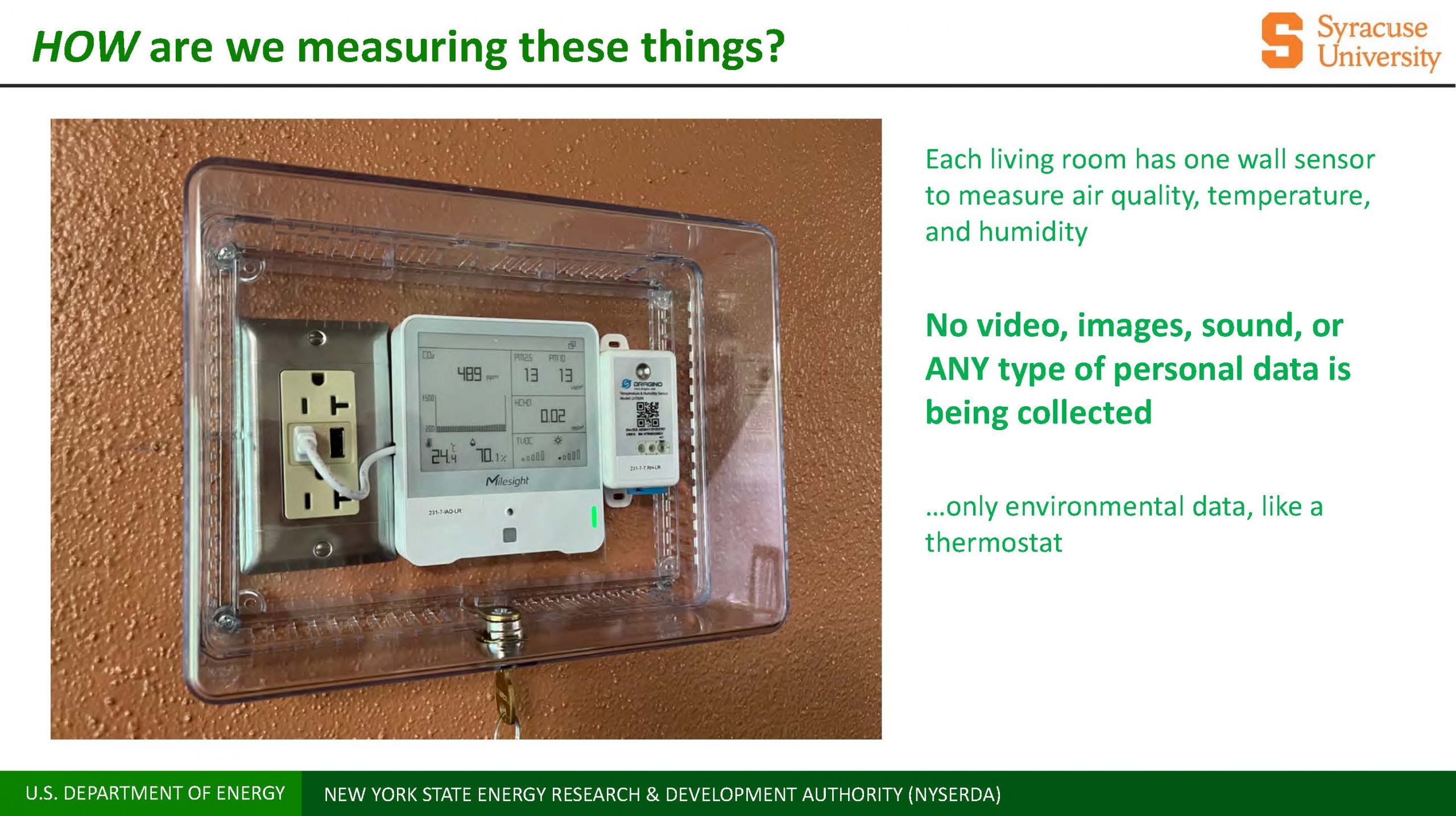
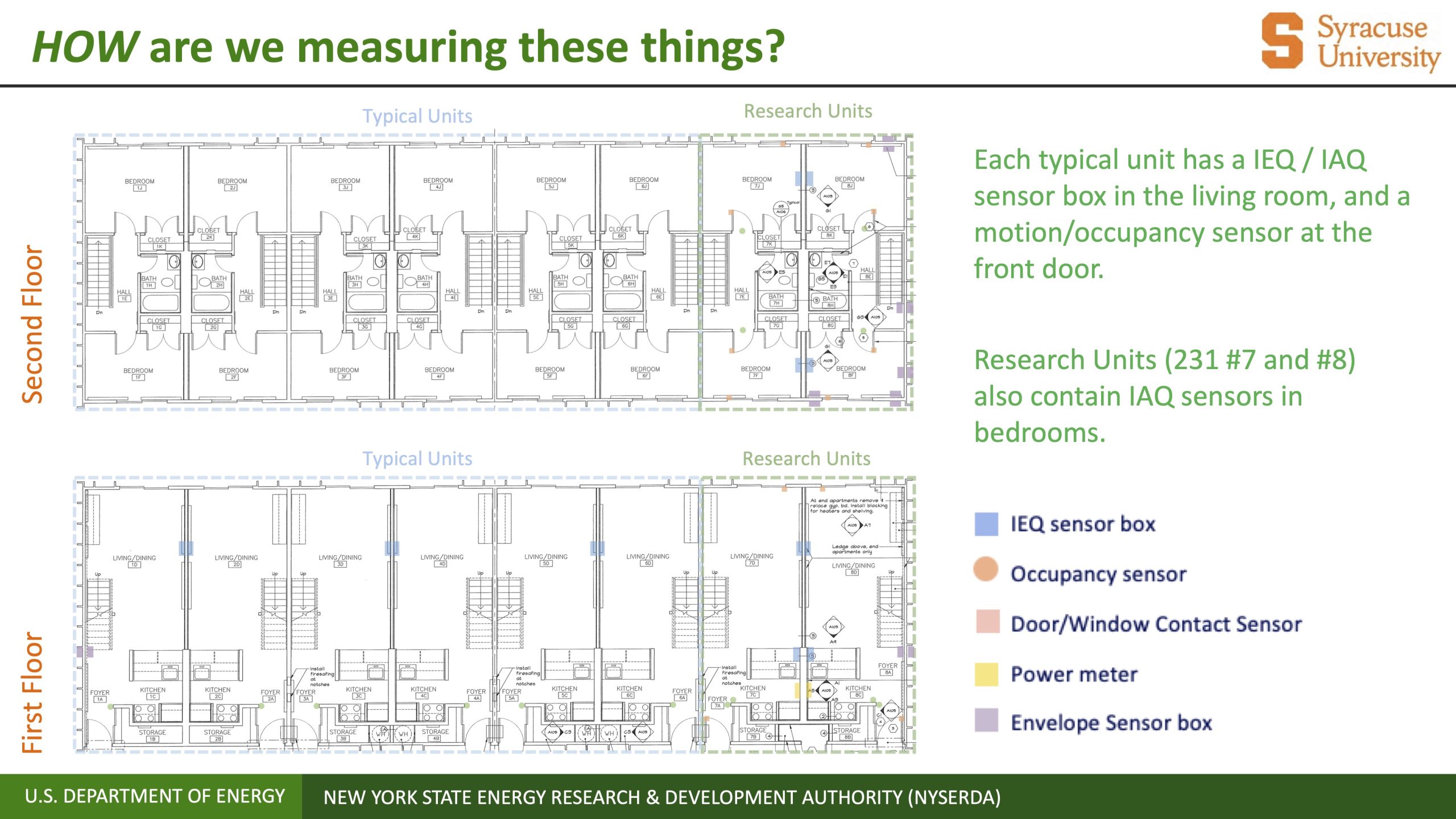
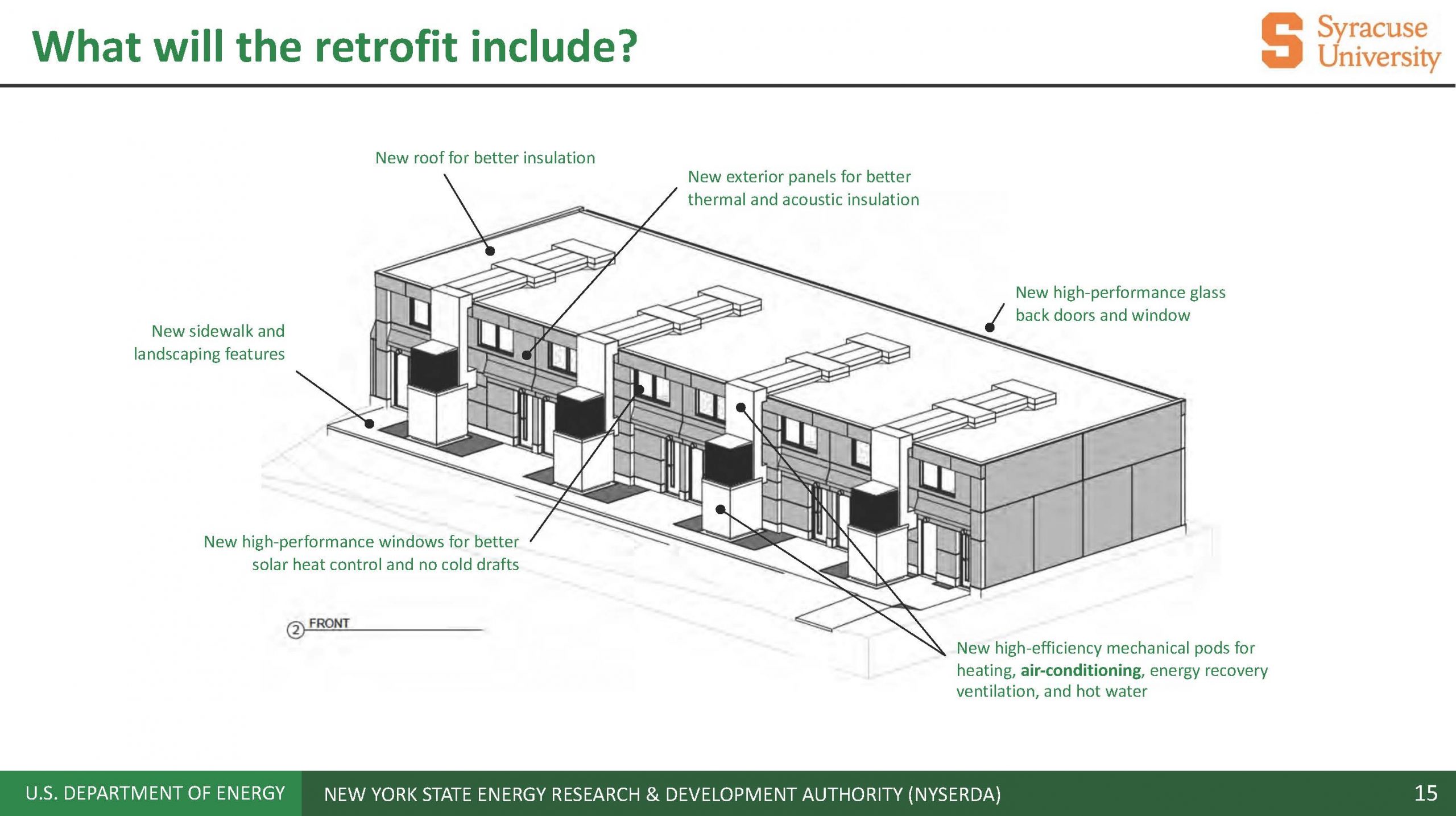
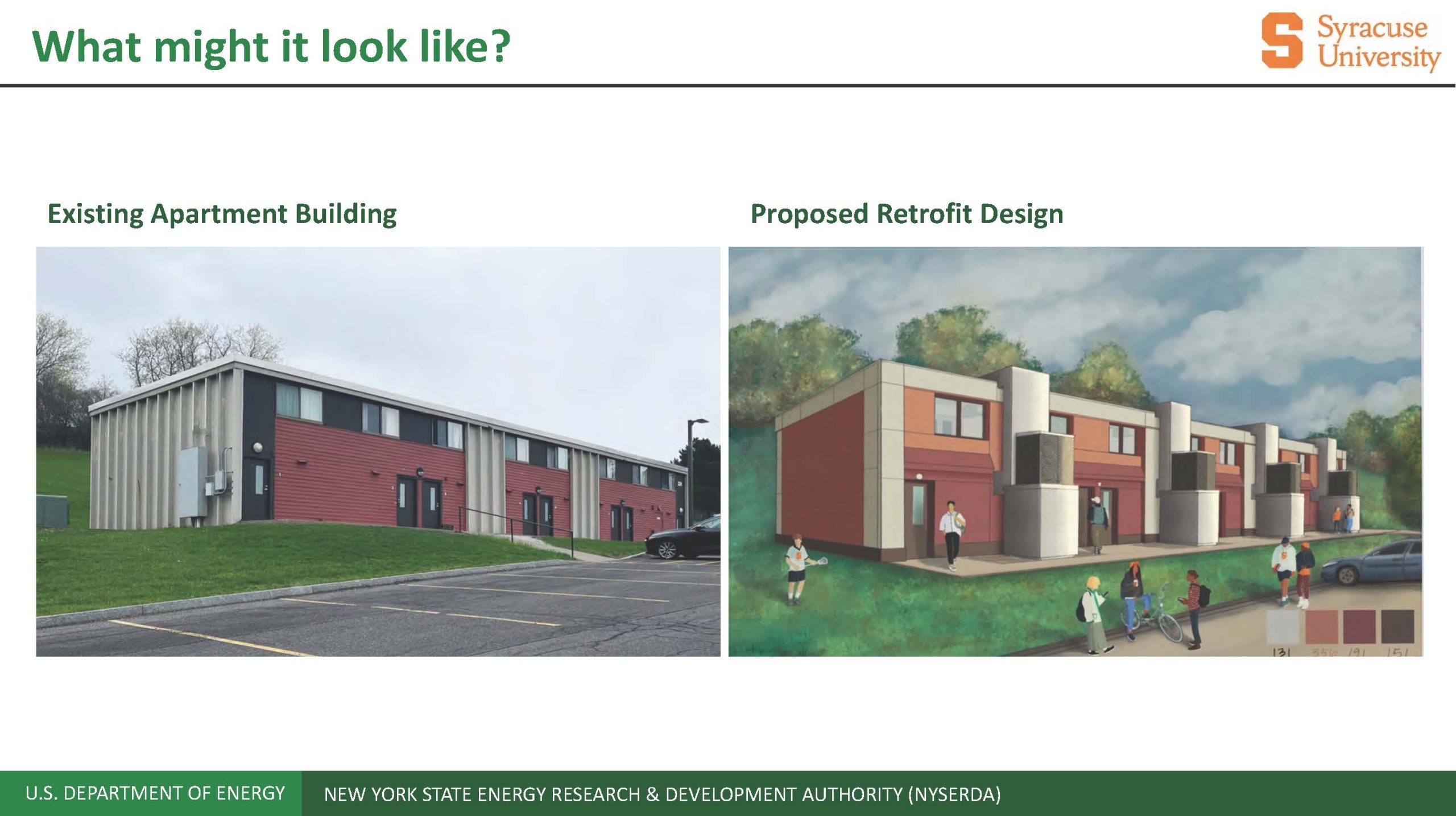
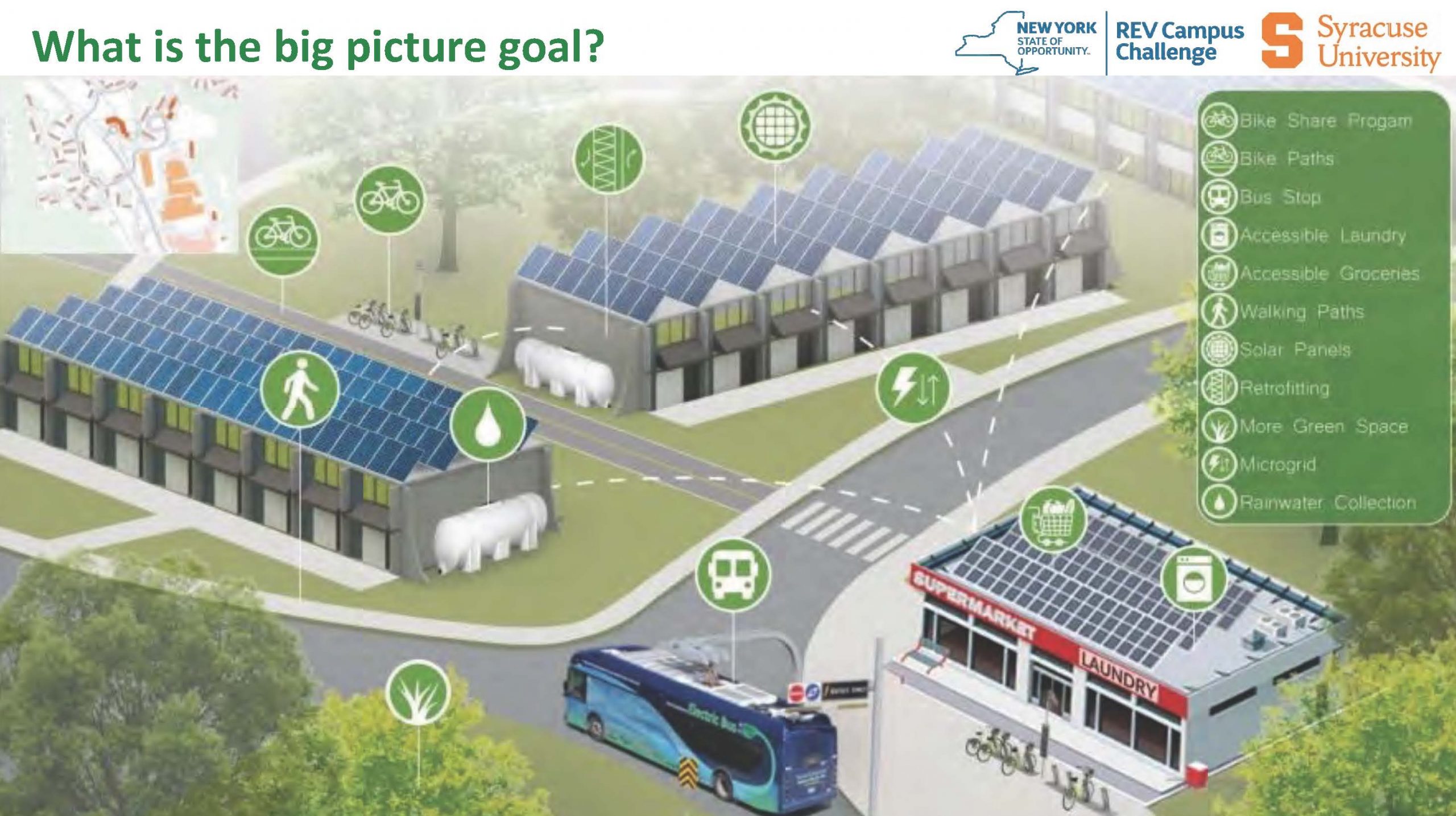
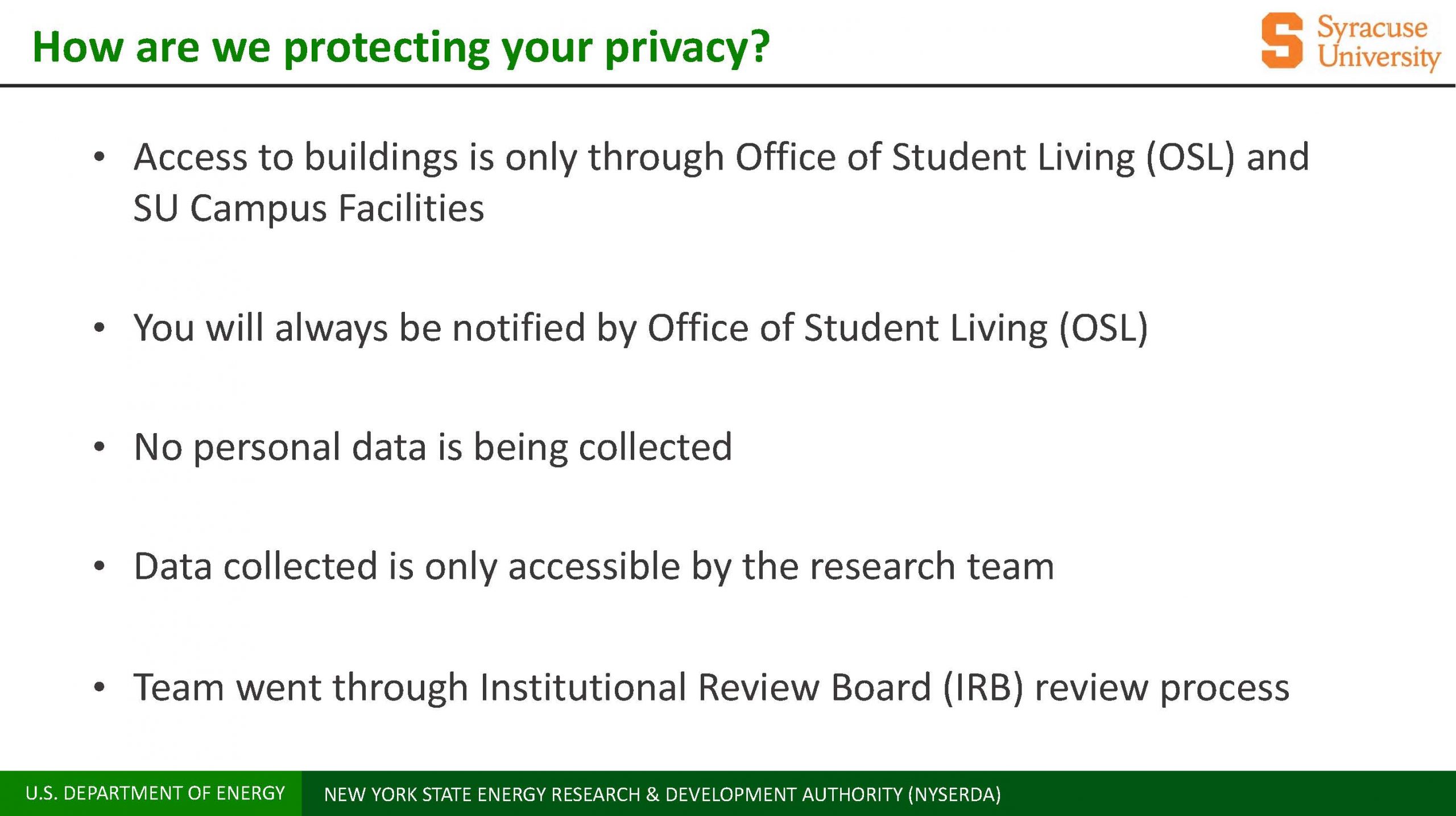
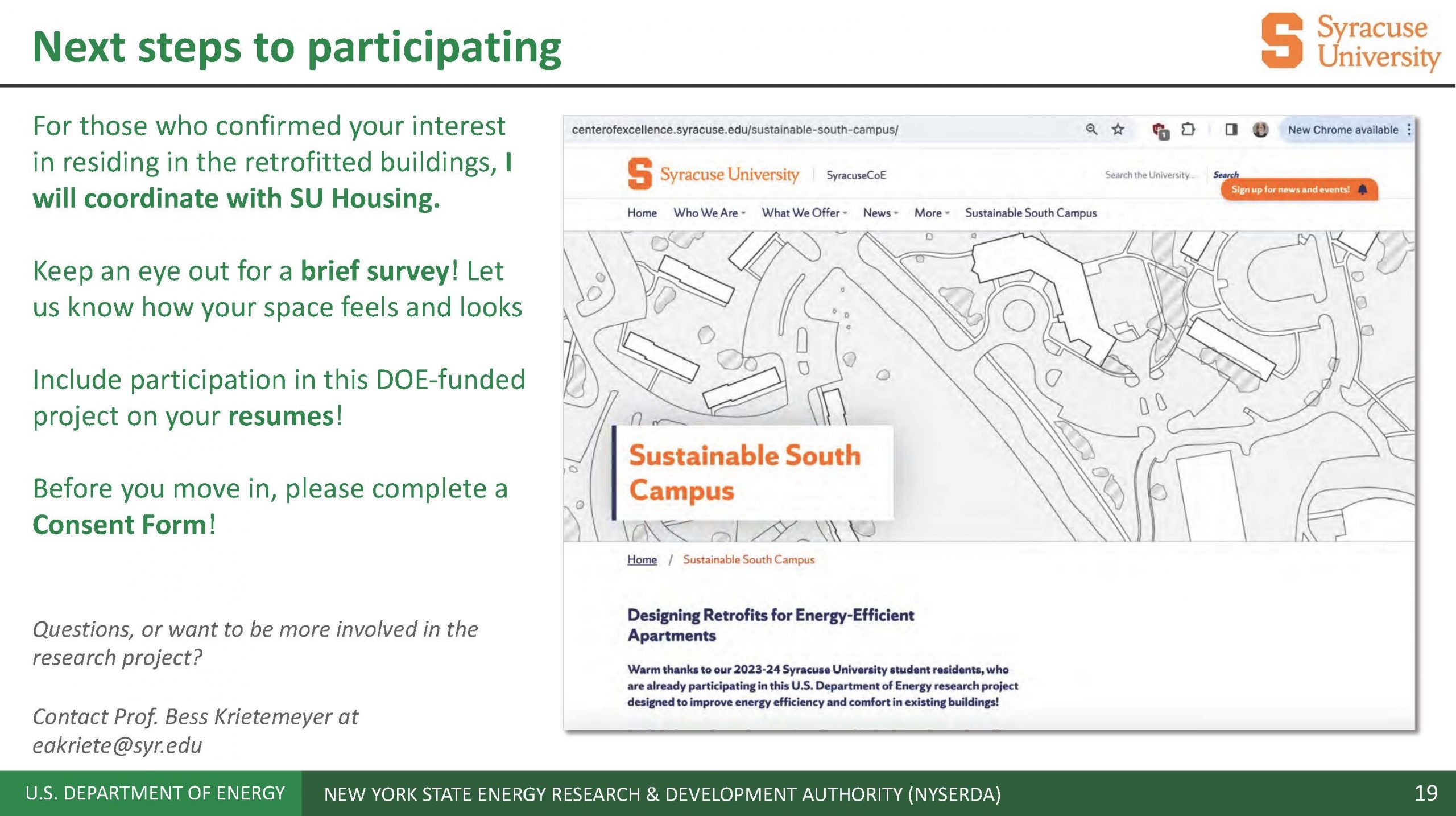
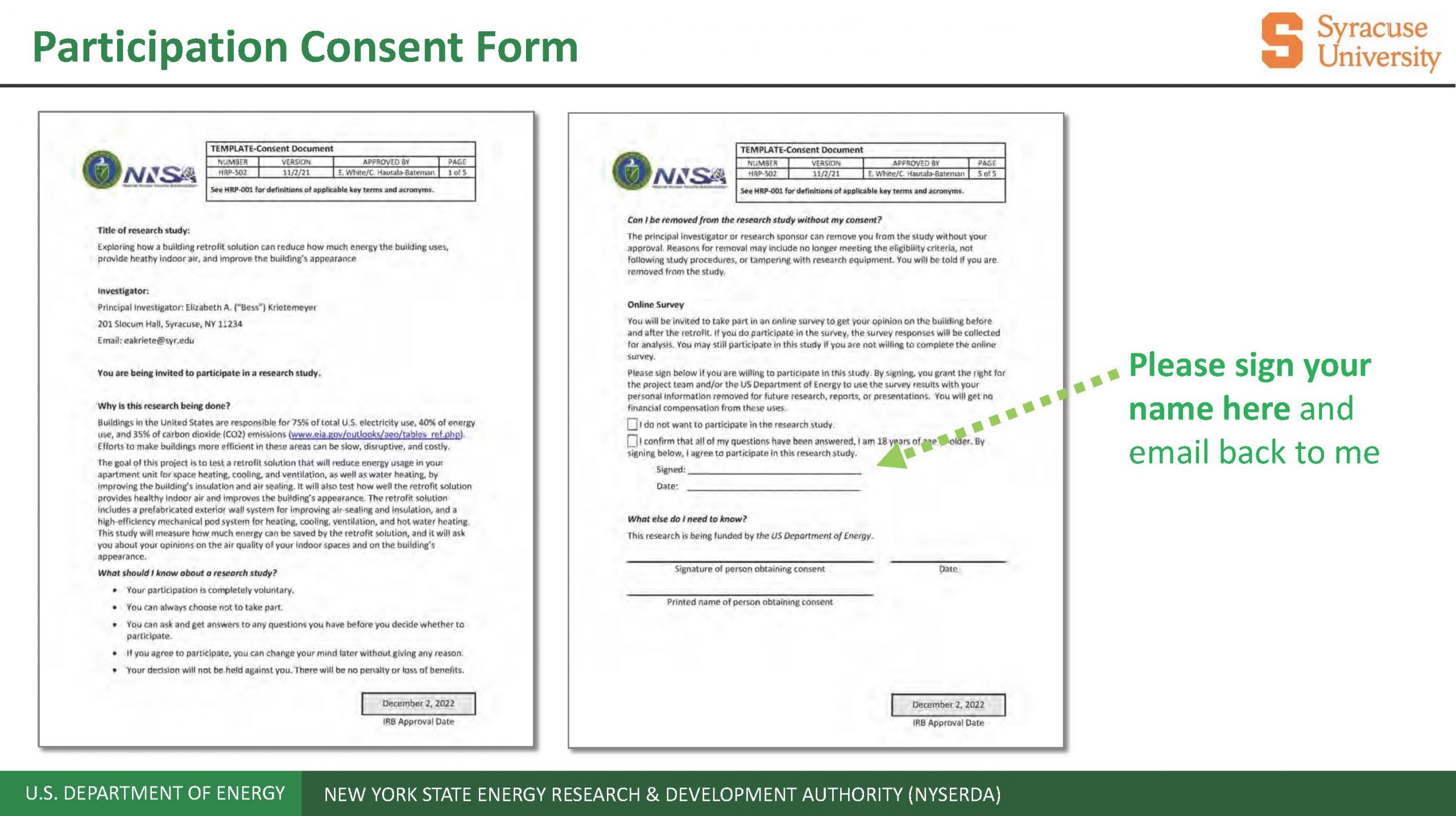








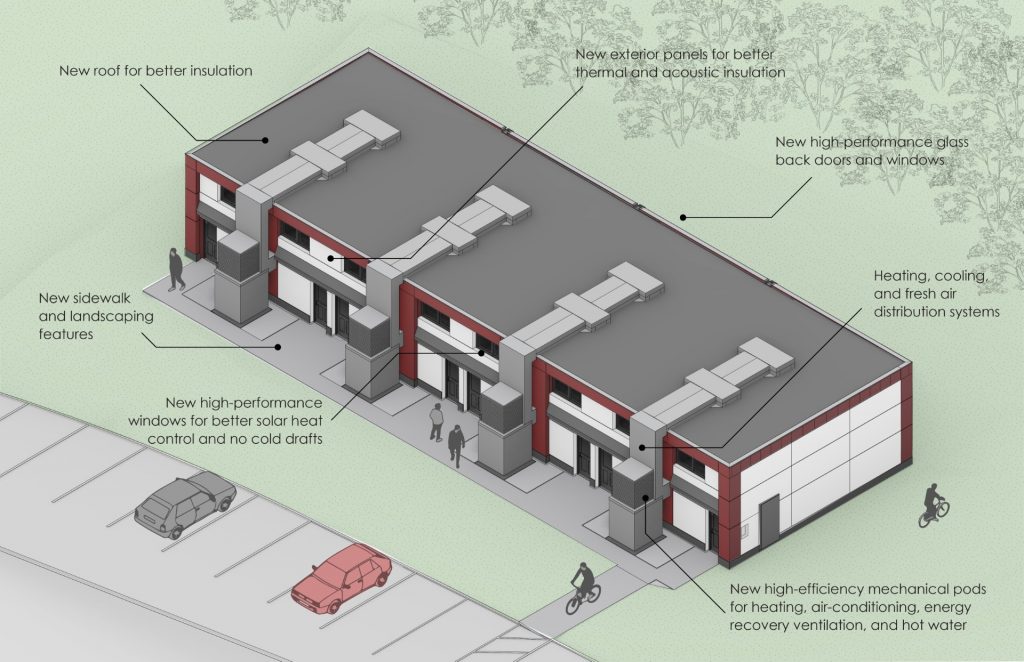
Building Retrofit Features
Additional FAQ Link
For society in general, this research is testing Advanced Building Construction (ABC) retrofit technologies for existing buildings. These are designed to drastically reduce energy use in existing buildings. Real-world tests of these technologies are an important step in bringing them to market.
Indoor Temperature
Indoor Humidity
Indoor Air Quality
Whole-Home Energy Usage
Heating Energy Usage
Water Heating Energy Usage
Data measured by installed equipment will be transferred through a cellular modem. Researchers will not use your WiFi network. All personally identifiable information (your name, phone number, and email) will be stored on a password-protected computer that is only shared with the project team. All measured data will be identified through a unique ID that is not your name, phone number, or email.
Student residents may be asked to provide their opinions about their thermal comfort and indoor air quality through an online survey. All personally identifiable information collected during surveys will be stored on a password-protected computer and only shared with the project team. Any information linking you to your responses will be removed before sharing or publishing the data.
• Data regarding indoor environmental conditions and energy usage will be collected as a part of this research.
• All personal information connected to measured data or your survey responses will be removed before sharing the results. Only the project team will have the ability to link data and your survey responses.
• All data will be coded with a unique ID that removes your identity from your data. A database that links your information to data will be encrypted within a password- protected computer and kept private.
• Personally identifiable information will be protected in a way that is appropriate for the type of data. Printed copies of this information will be stored within a locked file cabinet. Digital copies of this information will be stored within an encrypted file. Any of this information that is sent electronically will be transmitted via encrypted email.
• Personally identifiable information will be stored by the project team for three years after the study is complete. After three years, this information will be destroyed.
• When results are reported or published, data will be combined, and direct identifiers removed to protect your identity.
Information you provide in the study will be treated as confidential. Every effort will be made to protect and limit the use and disclosure of your personal information. However, there may be circumstances when this information must be shared as required by law. Other organizations that may have access to information from this study include the CDOEIRB, representatives of the Department of Energy Human Subjects Protection Program and its accrediting organization, other federal regulatory agencies, and the sponsor of the study.
Contact Information:
Principal Investigator: Elizabeth A. (“Bess”) Krietemeyer
201 Slocum Hall, Syracuse, NY 11234
